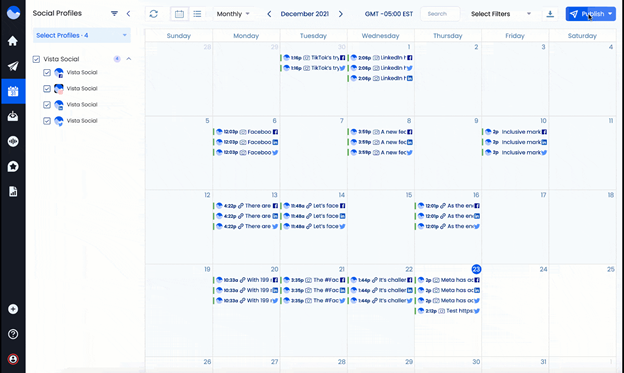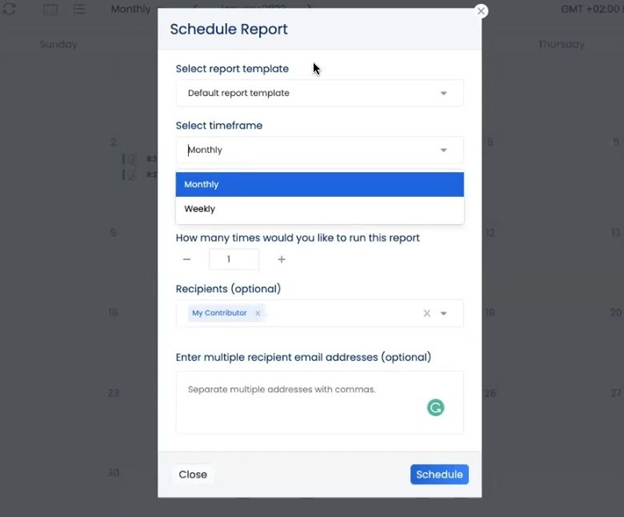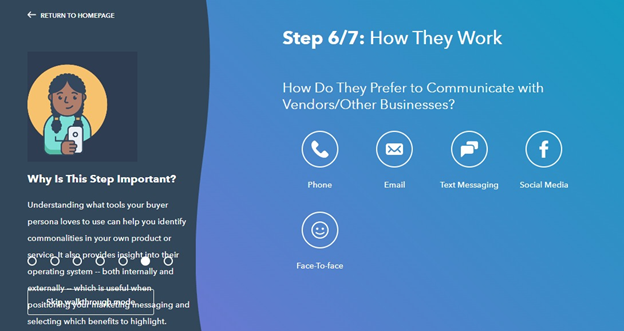
Streamline Your Social Media Project Management With These 4 Tips
Like most busy companies, you struggle to manage your social media campaigns efficiently on top of handling other projects and your daily to-dos.
If you don’t plan, organize, and strategize, you’re not likely to run your campaigns effectively or get your expected results and returns.
This is where social media project management comes in.
Essentially, social media project management takes the basic principles of ecommerce project management and applies them to social media projects.
It involves the skills, knowledge, techniques, and tools used in a structured approach to help you and your team meet your social media project requirements and goals seamlessly.
Learn more about managing your social media projects as efficiently as possible with these four tips.
What is social media project management?
Social media project management refers to managing campaigns across social media marketing channels.
Social media marketing is often complex. It involves doing tons of research, planning campaigns, creating content, scheduling posts, photography, graphic design, monitoring analytics, and other tasks.
Running social media campaigns can also involve multiple departments and team members who need to manage tasks efficiently and collaborate effectively.
Social media project management can address and streamline these through reliable tools, processes, systems, and workflows. It can help everyone stay on the same page and keep the projects on schedule.
4 Tips to manage your social media projects efficiently
Getting an overall view of the many aspects of your social media campaigns and projects is critical to your marketing efforts’ success.
After all, having visibility into every process makes it easier to track and check your campaigns’ progress and performance.
You’ll also know whether your team is staying on track and make the right adjustments promptly.
Below are some strategic ways to streamline your social media project management process.
1. Leverage the right tools
Using reliable tools is crucial to running your social media marketing campaigns and managing your projects effectively.
Some of these platforms and apps include:
- Lead capture tools
- Reliable task management software
- Asset repositories
- Social media content calendars
- Analytics platforms
- Social media listening and monitoring software
- User-Generated Content (UGC) tools
- Contest and promotional management apps
Some tools cover most, if not all, of these features.
For instance, Vista Social offers an all-in-one social media marketing platform with modern, sophisticated features—from post scheduling to robust TikTok tools for marketing.
Use the platform to plan, create, organize, and schedule your social media content to auto-publish across your connected social networks easily.

You can manage and track your engagement through Smart Inbox and Review Management features and monitor mentions of your brand in your network.
You can also plan your social media activities and posts through a content calendar and auto-generate your analytics reports with ease.

Additionally, opt for tools that integrate seamlessly with your existing toolset.
You’ll save time and energy replicating information and processes across platforms while managing your social media marketing tasks and projects efficiently.
Advertisement
[widget id=”custom_html-68″]
2. Perform regular social media audits
Your team is more likely to run social media project management processes effectively when informed by data.
The key is to regularly conduct a social media audit (monthly, quarterly, bi-annually, or annually) to gain valuable insights into what’s working (and what’s not).
You’ll also get a good idea about the platforms your audience spends the most time in and the content types that drive the most engagement.
Leverage handy social media audit tools to perform your assessments easily.
Depending on your in-house expertise and resources, you can integrate data flows between popular big data analytics tools and your social media audit tool for more comprehensive analysis and insights.
Perform periodic social media audits to eliminate guesswork and refine your current strategy. It helps ensure you don’t run your projects and campaigns blindly.
Create and deploy campaigns tailored to your target audiences’ needs and interests and focus your efforts on what resonates most with your potential customers.
You’ll avoid wasting resources and optimize your social media project management process to drive meaningful results.
3. Create platform specific audience personas
Maintain a consistent brand voice and image across your social media marketing channels is crucial.
However, you’ll need to tailor your campaigns based on the specific platform and audience groups.
After all, your LinkedIn audience, consisting mostly of professionals, likely has different interests than your Instagram followers, who are focused more on entertainment, shopping, and aesthetics.
The solution? Create personas for your target audiences on specific social media platforms.
Doing so allows you to create social media campaigns, content, messaging, etc., tailored to the audience groups’ unique preferences and needs.
Create or refine your social media audience personas using tools such as MakeMyPersona from HubSpot.
Generate your audience persona templates based on the demographic traits, job, social media consumption habits, preferred communication channels, and more.

Creating personas helps you know your audience better, informing and shaping your strategies.
It allows you to target your social media audience with specific campaigns designed for certain platforms and like-minded personas or audiences.
Essentially, creating personas helps you create and deliver campaigns and content to the right social media audience groups through the best-fitting channels at the best time.
You’ll have a higher chance of engaging your audience and achieving social media marketing success.
Remember to keep your audience personas updated and readily accessible to your social media marketing team.
4. Provide clear responsibilities and workflows
Some common roadblocks that keep you from achieving seamless social media project management are unclear roles, responsibilities, and workflows.
Ensure your team members know who should handle specific tasks to avoid confusion and potential delays that cause bottlenecks in your workflows.
Provide written or documented workflows and processes to outline the steps required in each promotion or campaign.
Include the stages of getting the manager’s approval before posting new creatives and guidelines on where to find and use UGCs properly.
Also, provide directions on tagging products appropriately for your social selling efforts, such as creating Instagram shoppable posts.

Providing clear roles, responsibilities, and workflows helps ensure your team members know the tasks they’re supposed to handle. It allows for a more seamless and, in turn, effective social media project management process.
Optimize managing your social media projects
While social media project management can be complex, it doesn’t have to be rocket science.
Take inspiration from the tips in this guide.
Establish clear workflows, leverage the best-fitting tools, automate when you can, know whether your efforts are succeeding or failing, and ultimately supercharge your social media project management process.
You’re likely to drive meaningful results and get excellent returns to achieve social media marketing success.